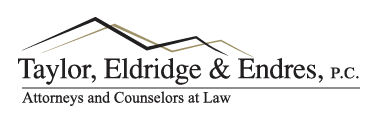The New York State Legislature recently passed a bill prohibiting Homeowners Associations (“HOA”) from unreasonably restricting the installation or use of solar power systems.
A “solar power system” is defined as solar panels on a rooftop. The new law becomes effective October 1st, 2021.
The law expressly states that “a homeowners association may not adopt or enforce any rules or regulations that would effectively prohibit, or impose unreasonable limitations on, the installation or use of solar power systems” on property owned by the homeowner. Any rule which prohibits or unreasonably limits the installation or use of a solar power system on property owned by the homeowner shall be deemed unenforceable and void.
However, the law does state that “a homeowners association may adopt or enforce a restriction prohibiting the installation of a solar power system that is located on property owned by the homeowners’ association or that is located on common area”.
The law enumerates two (2) restrictions that would be considered unreasonable:
- Limitations that inhibit the solar power system from functioning at maximum efficiency, and
- Limitations that increase costs greater than 10% of the total cost of the installation of the solar power system.
An example of an “unreasonable limitation” would be an HOA rule that a solar power system cannot be installed where it is visible from the street. If installing the solar panels on the backside of the roof hinders the solar panels from getting maximum sunlight, then this rule might be deemed unreasonable because it inhibits the solar power systems from functioning at maximum efficiency.
Examples of restrictions that might be considered reasonable are requiring a specific method of installation which minimizes damage to the roof, or requiring the solar panel wires to be hidden. These two restrictions most likely would be considered reasonable because they do not hinder the solar power system from working at maximum efficiency nor should they increase the total cost of installation by more than 10%.
What is the significance of the rule and who does it pertain to?
It seems that the rule does not apply to co-op communities because roofs on co-op buildings are usually owned by the corporation. In addition, the rule does not appear to apply to condominium communities because generally condominium roofs are common areas not owned by the homeowner. Therefore, it appears that this new solar law applies to HOAs only.
What can the association do?
It is in the HOA’s best interest to create a comprehensive policy addressing the maintenance and installation requirements of solar power systems on homeowners’ properties. By adopting a clear policy early, a HOA will be better positioned to guide the development of solar power systems within its community. To strengthen any policy a HOA plans to implement, it should use and reference the Solar Rights Act as a guiding force in developing any potential procedures and requirements relating to any such solar power systems.
A policy might include:
- A requirement for homeowners to submit a written application to the board for approval prior to installation;
- A requirement that any proposed contractor be licensed and insured;
- A method of installation should involve minimal penetration of roof shingles and minimal wire exposure; and/or
- An agreement which states that the homeowner would be responsible for the removal and installation of solar panels at the homeowner’s expense if repair/replacement of the roof becomes necessary.
Creating a comprehensive policy is imperative because while the roof in an HOA is often owned by the homeowner, the maintenance, repair and replacement of the roof is often the responsibility of the Board of Directors. A solar panel system policy can be used to reconcile these potentially competing interest.
Bottom line:
The purpose of this law is to promote alternative energy usage. It is in the HOA’s Board’s best interest to amicably work with homeowners to facilitate solar panel installation and use while protecting the interests of the Association.

